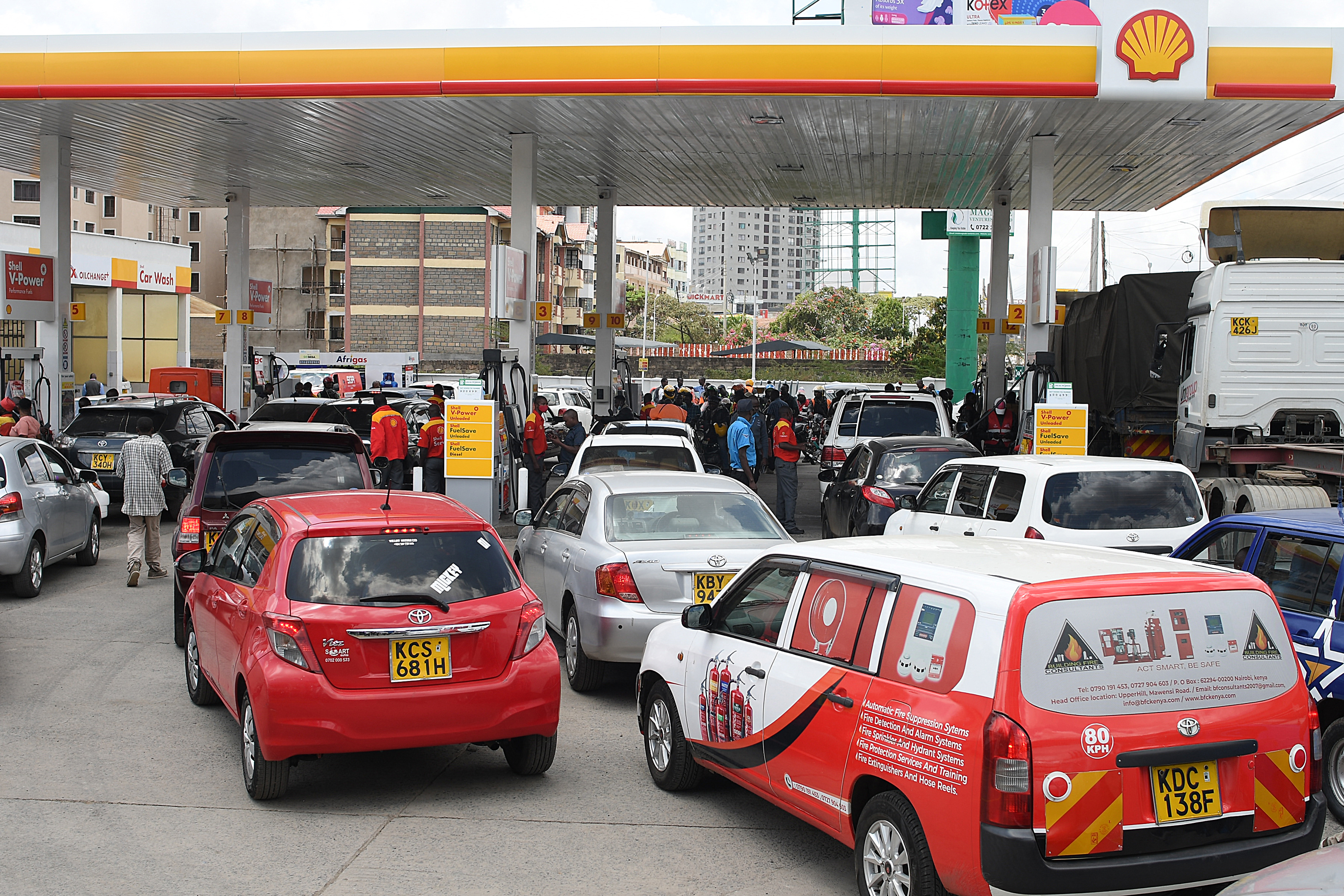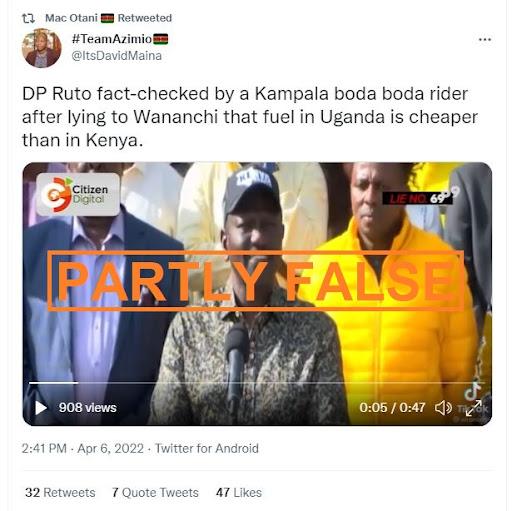
Fuel shortage crisis in Kenya sparks online disinformation
- This article is more than three years old.
- Published on April 21, 2022 at 12:32
- 3 min read
- By Mary KULUNDU, AFP Kenya
On April 6, 2022, a TikTok account shared a video of Ruto’s speech with the caption: “Politicians LIE to you because they think you are IGNORANT. Say NO to LIES”.
The clip shows Ruto at an address two days earlier, asking: “How come that fuel in Uganda is cheaper than fuel in Kenya and yet the fuel being sold in Uganda goes through Kenya?”
A red overlay with the word “lie” is splashed across the screen.

This is followed by a news report showing a Ugandan motorist telling a reporter: “Yesterday I was wandering in one of the suburbs around Kampala and I took a litre of petrol at 12, 000 (Ugandan shillings) and I was like what is going on in the country (sic)”.
The use of the word “yesterday” by the Ugandan motorist gives the impression the large disparity in pricing between the two countries is current.
The same TikTok video was shared on Twitter:

AFP Fact Check found that while fuel is more expensive in Uganda – including when Ruto made his speech on April 4 – the claim that it is threefold higher is a gross exaggeration.
Old clip
A search online shows that the clip of the motorist is from January 2022 when Uganda was experiencing its own fuel shortages because of Covid-19 restrictions.
Fuel prices in Uganda skyrocketed after hundreds of truck drivers transporting fuel from Kenya were delayed at the border due to mandatory coronavirus testing.
At the time, Uganda’s Prime Minister Robinah Nabbanja announced that a litre of fuel would be capped at 5,000 Ugandan shillings – the equivalent of about 161 Kenyan shillings.
Current prices
Meanwhile, at the time of Ruto's speech, the average price of a litre of fuel in Kenya was 134 Kenyan shillings, according to the Energy and Petroleum Regulatory Authority (EPRA).
Ugandan authorities do not publish weekly averages, but according to data from the Global Petrol Prices website, the same litre of fuel cost 5,100 Ugandan shillings. This is equivalent to 165 Kenyan shillings — 13 percent higher than the price for a litre in Kenya, but not three times more.
Prices as of April 19, 2022, were virtually unchanged, with only fuel in Kenya increasing to Sh 144 a litre.
Speaking to AFP Fact Check, Uganda's trade minister Harriet Ntabazi described January fuel price hike as “temporary”.
"The pump price per litre of petrol is still within the government cap of UGX5000, but some stations sell below that,” she said. "However, there are reports we are getting that some fuel stations are overcharging consumers and we are investigating the matter with the aim of taking action against errant dealers."
Kenya’s fuel crisis
Since fuel shortages erupted in early April, the Kenyan government has been locked in a war of words with fuel suppliers, with both sides blaming each other for the crisis.
The government pays oil providers to subsidise costs for motorists, but the same suppliers said they were waiting for months of outstanding payments. As a result, they stopped supplying fuel, leading to countrywide scarcity.
President Uhuru Kenyatta signed off on a supplementary budget on April 4, 2022, to settle the government's debt with oil marketers.
Supply is back to normal, according to the country’s energy ministry.
Copyright © AFP 2017-2026. Any commercial use of this content requires a subscription. Click here to find out more.
Is there content that you would like AFP to fact-check? Get in touch.
Contact us
